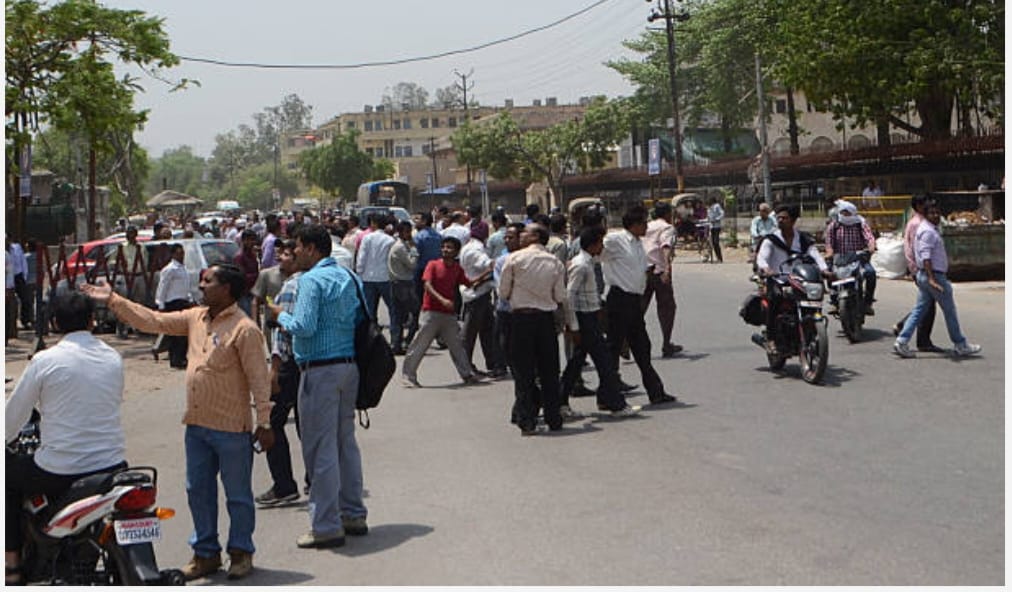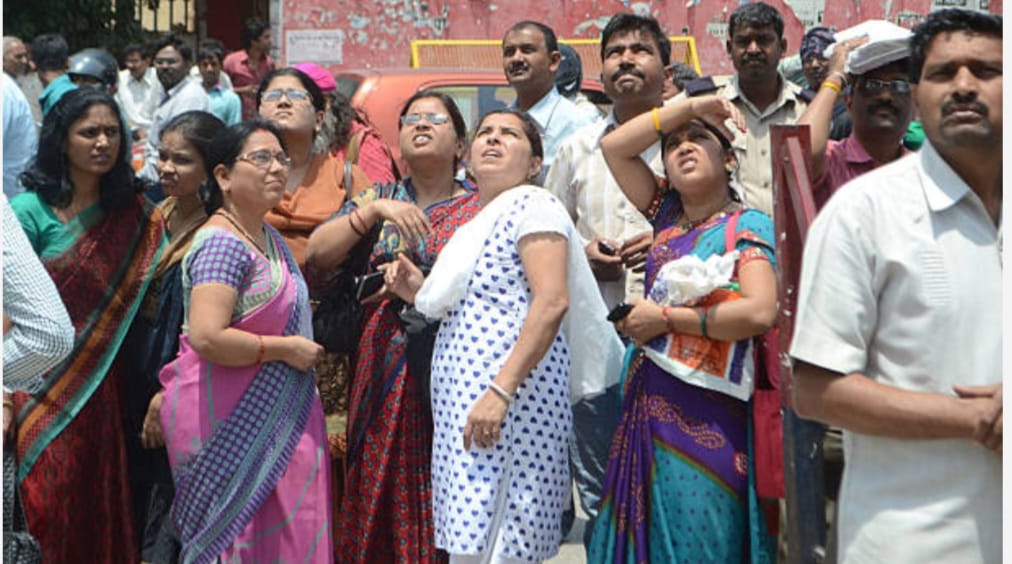Strong tremors of earthquake were felt in Delhi on Thursday. The epicenter of the earthquake was Jhajjar in Haryana. The intensity on Richter scale here was 4.4. Due to this, tremors were felt in Delhi and NCR. No damage has been reported. Apart from Jind and Bahadurgarh in Haryana, areas of Western Uttar Pradesh and Rajasthan also felt tremors for 10 seconds. This is the third time in the past six months that an earthquake has struck Delhi and NCR. Before this, earthquakes had also occurred on 19 April and 17 February. Earthquake in delhi Magnitude 4.5 .
Earthquake in Delhi: Causes, Effects and Protective Measures
Introduction; earthquake
Earthquake is a natural disaster that occurs due to sudden shaking of the earth’s surface. Recently, earthquake tremors were felt in Delhi and its surrounding areas, which spread panic among the people. This incident not only became a matter of concern, but also reminded that Delhi is located in a sensitive area in terms of earthquakes. In this blog, we will discuss in detail the causes, effects and protective measures of the earthquake in Delhi.
What is an earthquake and why does it occur?
Earthquake occurs due to sudden release of energy in the earth’s crust. This energy is released when tectonic plates collide or slip. India is also located close to the Himalayan tectonic plate, due to which there is a high risk of earthquake here.
### Major causes of earthquakes in Delhi
- Movement of Himalayan tectonic plates – Delhi is close to the Himalayas, where the Indian and Eurasian plates collide.
- Geological structure of Delhi-NCR – The region lies on several fault lines, such as the Sohna Fault and the Mathura Fault.
- Anthropogenic causes – Excessive groundwater extraction and construction activities also increase the risk of earthquakes.

Effects of earthquakes in Delhi
Earthquake tremors are often felt in Delhi, but in some cases it can also cause serious damage.
1. Damage to buildings
- Old and non-strong structures may collapse.
- High-rise buildings may develop cracks due to excessive shaking.
**2. *1. Loss of life and injuries*
- People may get injured by falling debris or furniture during an earthquake.
- Accidents may occur due to panic.
3. Damage to infrastructure
- Roads, bridges and metro lines may be affected.
- Electricity and water supply may be disrupted.
4. Psychological impact
- People may remain in a state of fear and stress after an earthquake.
Measures to prevent earthquake (protective measures)
Earthquake is an unexpected disaster, but by taking some precautions we can reduce its impact.
1. Preparations before an earthquake
Make houses and buildings strong
- Earthquake-Resistant Construction:
- Build buildings according to IS 1893 (Indian Standard). – Use light roofs and flexible building materials.
- Get a structural audit done of old houses.
Keep an emergency kit ready
- Always keep a first aid kit, water, non-perishable food items, torch and essential medicines ready.
- Inform all members about what to do in case of an earthquake.
- Designate a safe meeting place.

2. What to do during an earthquake?
If you are inside:
- Drop, Cover and Hold On:
- Sit on the ground.
- Hide under a sturdy table or bed.
- Protect the head and neck with the hands. – Do not use elevators.
- Stay away from windows, mirrors and heavy furniture.
If you are outside:
- Move to an open area.
- Stay away from buildings, electric poles and trees.
If you are in a vehicle:
- Stop the vehicle and wait in an open area.
- Do not go under bridges or tall buildings.
3. What to do after an earthquake?
Safety check
- Check yourself and family for injuries.
- Check for gas leaks, exposed electrical wires and water leaks.
Avoid rumours
- Get information only from reliable sources (like NDMA, IMD).
Help people trapped under debris
- Wait for trained rescue teams, but help if safe.
Remember the Emergency Numbers
- Delhi Emergency Numbers
- **Police: 100
- Ambulance: 102
- Fire Brigade: 101
- NDRF: 011-24363260
Role of Government and Administration
- Earthquake Management Guidelines have been issued by the National Disaster Management Authority (NDMA).
- Delhi Government has emphasized on the construction of earthquake resistant buildings in the city.
- Mock Drills are conducted regularly.
Conclusion
Delhi is an earthquake-sensitive area, and the risk of earthquakes is always there. However, with the right information and preparation, we can reduce the impact of this disaster. Strengthening homes, preparing an emergency plan and following safety measures can ensure our safety.
“Precaution is safety” – This rule is especially applicable for disasters like earthquakes.
In this blog, we have discussed the causes, effects and prevention measures of the earthquake in Delhi. If you find this information useful, share it with your friends and family so that everyone remains alert about this natural disaster.
#earthquakesafety #delhiearthquake #disastermanagement #safeindia




